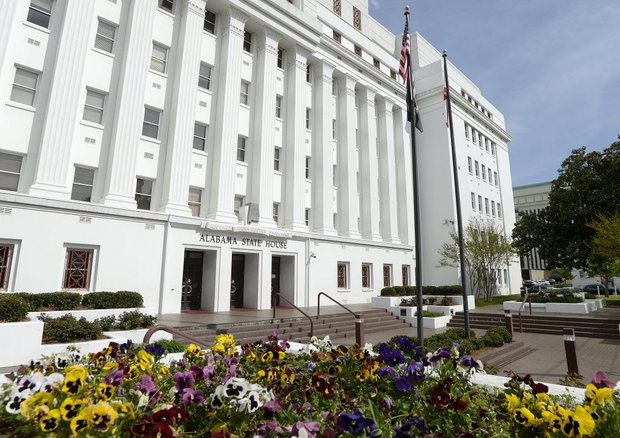Kenneth Paschal: Government needs to stop hurting Alabama families

Parental rights in Alabama are under assault. These fundamental rights are consistently treated as “ordinary” by federal and state government, which essentially provides government with unlimited power to undermine the family unit. We all know laws and the court system are intended to protect citizens, but when it comes to families, husbands and wives, and fathers and mothers, laws and their enforcers can sometimes become harmful instigators. This harms children, parents, families and society. Power over the family unit is best placed in the hands of the parents not government. In 2011, Senate Joint Resolution 65 (SJR 65) was approved by the Alabama legislature, which requires proper proof of harm before the government will intervene in parental decision-making. (As acknowledged by the U.S. Supreme Court in Wisconsin v. Yoder (1972), that held, “The primary role of the parents in the upbringing of their children is now established beyond debate as an enduring American tradition.”) The signing of SJR 65 sent a strong message to Washington. The state of Alabama acknowledged the fundamental right (God-given) of parents (meaning, granted by God and cannot be take away without compelling reason) to direct the upbringing and education of their children, is protected by the Alabama and U.S. constitutions. The Alabama Supreme Court has declared parental rights are fundamental in prior rulings; however, the Legislature has never before defined the level of protection granted to parents. I am appreciative of our Legislature and governor for publicly announcing to citizens a defined standard in SJR 65, “the right of the parents to direct the upbringing and education of their children is a fundamental right protected by the Constitution of the United States and the state of Alabama”. Because SJR 65 is not codified in Alabama statutes, the result of such failure to “Secure Parents’ Fundamental Rights” is allowing the courts and other state agencies to routinely over-reach their responsibilities. Examples include a court order stating parents are not allowed to have a glass of wine during dinner; parents not allowed to send their children to church on Wednesdays; discontinuation of homeschooling of a teenager based on an argument that he needed more diversity; a 14-year-old is not required to share health information with his or her parents. This is why Senate Bill 135 and House Bill 213 were filed this year and why they are so important to Alabama’s families. They would protect parents’ fundamental rights (God-given) in Alabama. We need to strongly urge our Legislature to increase the protections of family values by declaring in this State, what they have already declared to the U.S. Congress, any political subdivision of the state, or any other governmental entity or institution shall not infringe upon the fundamental rights of fit parent’s to direct the upbringing, education, and physical and mental health of his or her minor child subject to strict scrutiny without demonstrating a compelling governmental interest, as applied to the child involved, is of the highest order, and the same is narrowly tailored in the less restrictive manner. SB 135 and HB 213 have seen opposition from the divorce industry and Alabama Association of School Boards. SB 135 is assigned to the Human and Health Services committee and chaired by Sen. Gerald Dial, a Republican and a Baptist. HB 213 is assigned to the House judiciary committee and chaired by Rep. Mike Jones, a Republican, family law attorney, and a deacon of his church. Both bills have seen support from across the state and country to include the Homeschool community and the Alabama Federation of Republican Women (AFRW). AFRW passed a resolution in support of Parental Rights in Alabama during its Legislative Days event April 1 and 2. Citizens of Alabama have requested weekly that Dial and Jones place these bills onto their committee agenda. The Alabama citizens’ requests so far seems to fall on deaf ears. I encourage everyone reading this to write and call their members as well as committee chairmen Dial and Jones to ask them to support these bills and bring them up before the session comes to an end. Retired Army 1st Sgt. Kenneth Paschal is the director of governmental affairs of the Alabama Family Rights Association. Information on the organization and its efforts can be found here.
House clarifies list of crimes that bar right to vote

With broad support from both parties, lawmakers in the House passed legislation to clarify voting rights for ex-offenders on Tuesday (99/1). The Kennedy-McClammy Act HB344 offers a comprehensive list of felonies that involve conduct contrary to standards of justice or morality, or moral turpitude. Under Alabama’s constitution, those convicted of a felony involving moral turpitude are disqualified from voting. However, county election boards can make their own judgments on which felonies involve moral turpitude. Republican Rep. Mike Jones said he drafted the legislation to avoid confusion and subjective treatment of ex-offenders. “If we have one definitive list, no county can make up its own definition. The goal today is to be as clear as we can and get all the counties working under one standard,” Jones said. “The Alabama statute provided a starting point, but frankly, there have been crimes passed since then – such as securities fraud and child torture – that weren’t addressed before but would now part of this uniform standard.” The bill outlines 40 felony convictions – including distribution of marijuana, child torture, and securities fraud – that can take away the right to vote. Democrats pointed out that a statewide definition would give those convicted of a felony a clear path to have their vote reinstated, but called for more inclusion of white collar felonies of equal impact. “It’s hypocritical to pick and choose what we’re going to count as a crime,” said Rep. Craig Ford of Etowah County. “If we’re going to do this, we need to include all types of felony fraud convictions, as well as a way to expunge felonies for nonviolent offenders.” If enacted, the law would require the Secretary of State to inform county election boards of the new definition and ensure the standard is followed across the state.
Filibuster delays House decision on voter registration

Debate on a set of voting rights bills was delayed again Tuesday as House Democrats took turns speaking in an effort to filibuster. The bills would push the deadline to register to vote from 14 days to 30 days before an election, require photo ID with all absentee ballot applications, and require county election boards to purge voter lists of possibly deceased or ineligible voters. As speaker after speaker took to the podium Tuesday during the scheduled motion to adopt a special calendar, House Democrats framed the measures as an effort to further challenge – rather than expand – voter rights in Alabama. “Over the last election cycle, we had the lowest voting turnout in state history,” Rep. Darrio Melton said. “And that low turnout was based on the laws we already have. We need to be making this process easier, not more difficult. These new laws would only push us backwards.” Lawmakers urged the House to consider public hearings and further debate on the following proposed laws: HB 293 requires voters to submit photo identification with absentee ballot applications. Under the proposed legislation, no ballot could be issued until the photo ID requirement is satisfied. HB 323 outlines how each county’s board of registrars will investigate reports that a registered voter has died or moved out of their precinct. HB 104 changes deadlines for registering or updating voter information from 14 to 30 days before Election Day. In addition, the measure prohibits campaign materials or partisan outreach within 150 feet of a polling place. Currently, materials and campaign workers are allowed within 30 feet of the polls. By contrast, the Kennedy-McClammy Act, HB 344, sponsored by Rep. Mike Jones, passed to the Senate with bipartisan support (99/1). The act prescribes a comprehensive list of felonies that involve moral turpitude, or conduct contrary to standards of justice or morality. Under Alabama’s constitution, those convicted of a felony involving moral turpitude are disqualify from voting. County election boards are currently free to adopt their own definitions, which can lead to subjective treatment of ex-offenders and uneven reinstatement of voting rights. With adoption of a uniform definition, those convicted of a felony would have clear guidelines for getting their vote reinstated. Because the speeches took place during a routine calendar motion by the House Rules Committee – not during the debate on the bills themselves – there was little opportunity for House Republicans to counter arguments on the provisions in each bill. At the start of the session, Representative Jack Williams told AL.com that he sponsored HB 104 after hearing from poll workers that the tight deadline made it difficult to prepare for Election Day.


